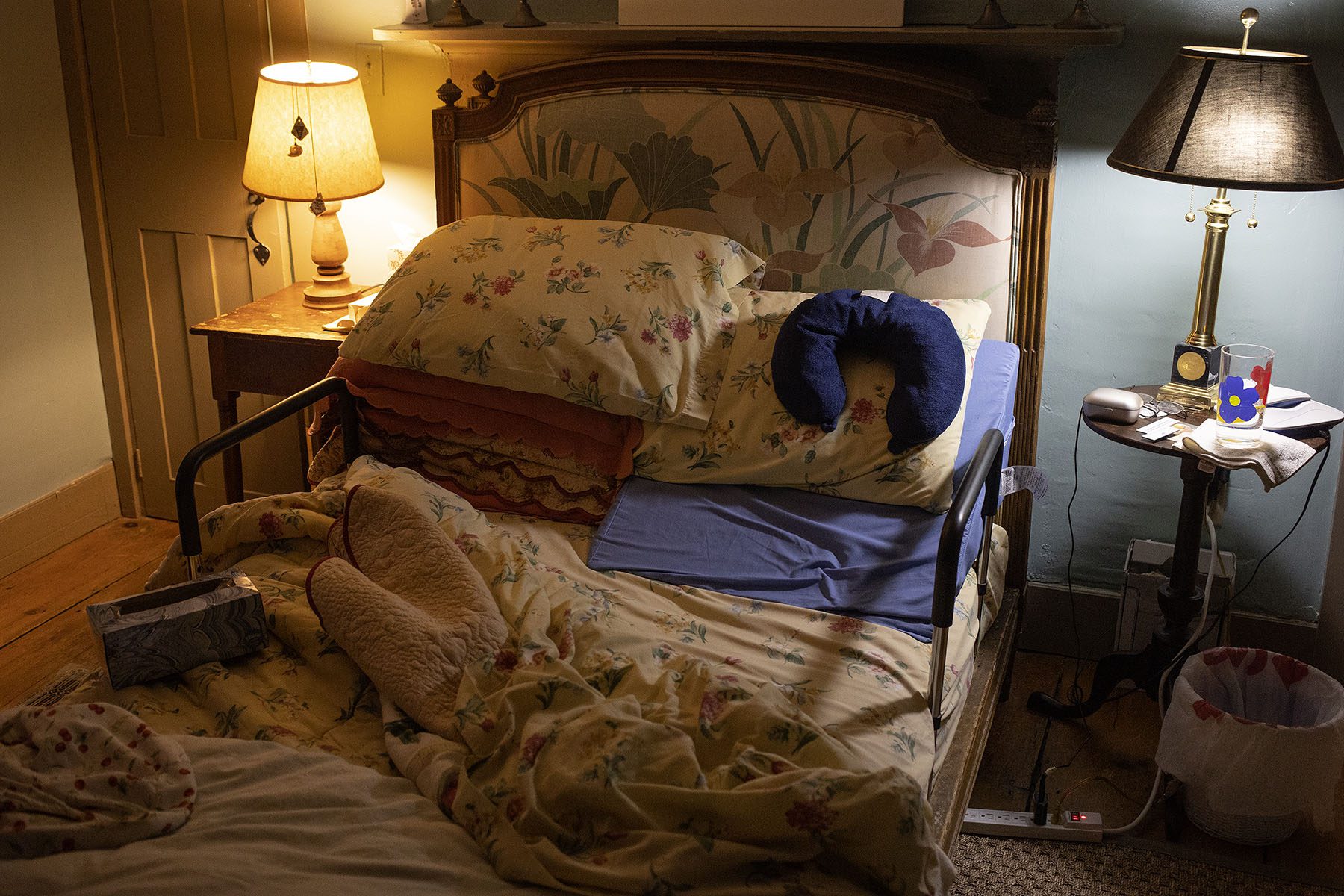President Joe Biden declared last month that nursing homes must require their staff to get vaccinated, or they risk losing their Medicaid and Medicare funding. But that mandate did not include home care workers, who comprise 53 percent of the workforce supporting seniors and people with disabilities. This leaves many of the 2.2 million people they care for vulnerable to COVID-19.
Even after Biden followed the announcement up with a second vaccine mandate for companies with over 100 employees, the vast majority home care workers were not impacted: At least 1.2 million home care workers are “independent providers” – essentially agencies of one, hired directly by the people they serve. Robert Espinoza, vice president of policy at the Paraprofessional Healthcare Institute, pointed out that 91 percent of home care workers are employed in agencies with less than 100 employees.
Nearly 9 in 10 home care workers are women, and two-thirds are people of color.
Despite COVID risks, advocacy groups and national nonprofits are not currently asking the Biden administration to mandate vaccines for home care workers.
“It’s complicated,” explained Nicole Jorwic, senior director of public policy at the Arc. The Arc is the largest American nonprofit representing people with intellectual disabilities and their families. “Obviously, we want people to get vaccinated. But staffing is at a historic low due to the pandemic, and we have capacity concerns,” Jorwic said.
In 2020, the industry turnover rate was 63 percent — almost two thirds of home care workers quit within a year.
Every U.S. state has at least one self-directed service program, according to the Kaiser Family Foundation. The programs have major benefits: They provide a sense of freedom and control that is absent when going through an agency, said Heather Kerstetter. Kerstetter, a Philadelphia social worker, has spinal muscular atrophy. She uses a wheelchair and needs assistance getting in and out of bed, bathing and dressing, among other daily tasks. She used agency care for most of her adult life, but found it difficult to find quality care.
Kerstetter, who is queer, said that people did not listen to her directions on how to care for her, and has had caregivers who did not like LGBTQ+ people. She also said she has faced physical abuse.
“I had one attendant who had some anger issues, who hit me upside the head,” she said. “As a social worker, if I can’t get the services I need, how can anyone else get them?”
For the past few years, Kerstetter has used self-directed care. Instead of going through a home care agency, Kerstetter finds assistance through Philadelphia-area queer job boards on Facebook. At first, it went well. For two years, she had a caregiver who Kerstetter said “understood my needs as a human being, but also as a disabled person.” Her personal care assistant left when she became too pregnant to lift Kerstetter any longer.
When Kerstetter found a new personal care attendant, she seemed like a good fit.
“She seemed really good, and for a long time, she was really good,” Kerstetter explained. Unfortunately, “our views of the pandemic were just wildly different,” she said.
When COVID vaccines became available, her personal care assistant, D., told Kerstetter that she’d gotten vaccinated. Kerstetter trusted her — she didn’t ask to see D.’s vaccine card. She wasn’t even sure if she could, legally speaking.
Then, months later, the truth came out. D. told Kerstetter “suddenly” that she was unvaccinated. Kerstetter fired her the next day.
“I needed her to work with me the rest of the night, otherwise I wouldn’t have had care … It was traumatizing,” she said.
Kerstetter felt a deep sense of betrayal, as well as fear for her own safety and health.
“If I got COVID, I would die. All of my doctors say I cannot, absolutely cannot, get COVID. I’ve gotten the flu before and ended up on a ventilator in the ICU. And COVID is worse than flu.”
Kerstetter asked not to publish D’s name – she never returned Kerstetter’s house key.
Family caregivers using self-directed care programs, which in some states are directly compensated by Medicaid, have also been impacted by the lack of a vaccine mandate. Brandon Will lives outside of Chicago with his mother, Janice Will. Janice has Parkinson’s disease and has needed full-time care — provided by Brandon, uncompensated — since 2018.
Only recently, the state of Illinois began paying Brandon for 15 hours a week through the state’s self-directed care program. That works out to about three hours a day.
“It’s just a fraction of what I do,” Brandon said, “but I don’t want to sound ungrateful. I know that some people can’t even get that.”
He and his mother are both vaccinated, but there was no legal requirement or mandate that he do so. Since the beginning of the pandemic, Brandon has cared for his mother without respite or support from another care worker, paid or unpaid. Before the pandemic, Brandon was able to get support from his community.
“It’s like these little ecosystems of different friends and neighbors who will allow me a couple hours to do something for myself,” he said. His brother, who lives in California, would also fly in regularly to care for their mother. But “the pandemic drove everyone off,” Brandon said. He is, unsurprisingly, feeling “burned out.”
Both Brandon and his mother are reluctant to allow paid caregivers in because of safety concerns.
“I wouldn’t necessarily feel comfortable,” Janice said, “and I’d want to be sure they were vaccinated. I’m just wary.”
Brandon agreed, “the way I choose to take care of my mom is just going to be a higher standard of care. She deserves more than she gets.”
Janice didn’t sound surprised when informed that vaccines weren’t mandated for many home care workers. She doesn’t feel like society values seniors and people with disabilities.
“I think they want to throw us away,” she said, bluntly. She also had warm words for her son and other caregivers: “[caregivers] need more appreciation and understanding of what they’ve given up.”






